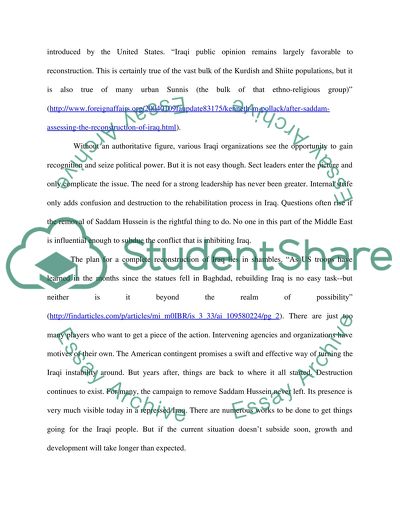Cite this document
(“Iraq Today Essay Example | Topics and Well Written Essays - 1750 words”, n.d.)
Iraq Today Essay Example | Topics and Well Written Essays - 1750 words. Retrieved from https://studentshare.org/geography/1520822-iraq-today
Iraq Today Essay Example | Topics and Well Written Essays - 1750 words. Retrieved from https://studentshare.org/geography/1520822-iraq-today
(Iraq Today Essay Example | Topics and Well Written Essays - 1750 Words)
Iraq Today Essay Example | Topics and Well Written Essays - 1750 Words. https://studentshare.org/geography/1520822-iraq-today.
Iraq Today Essay Example | Topics and Well Written Essays - 1750 Words. https://studentshare.org/geography/1520822-iraq-today.
“Iraq Today Essay Example | Topics and Well Written Essays - 1750 Words”, n.d. https://studentshare.org/geography/1520822-iraq-today.


